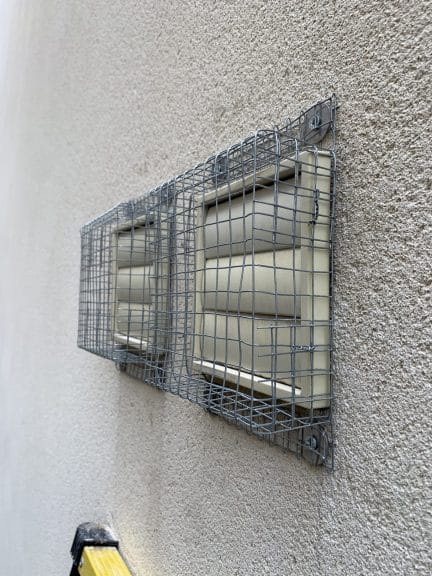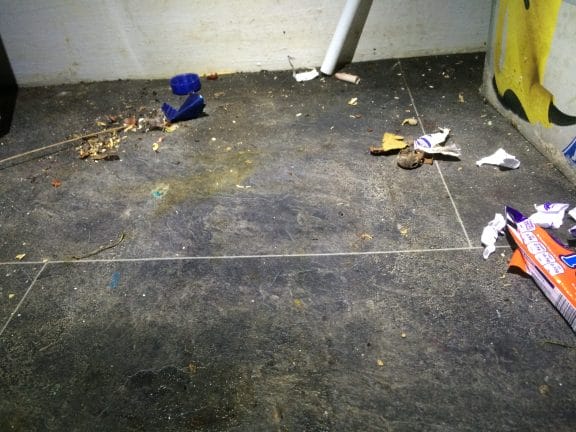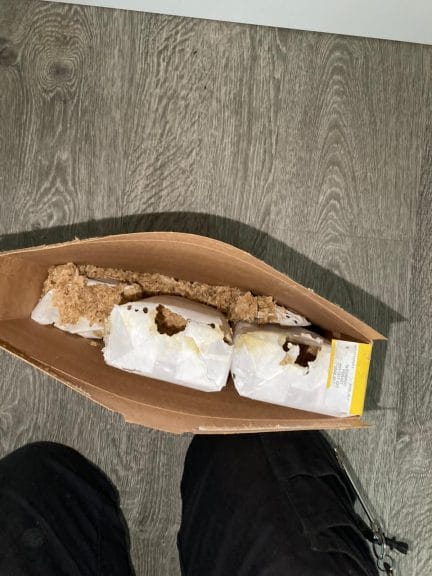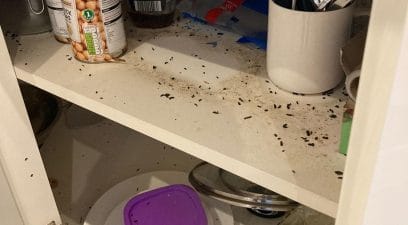A pest control problem can break out at any time through no fault of your own.
As a tenant, knowing if the problem is a landlord’s responsibility depends on several factors.
The most common include the type of pest causing problems and if the infestation was caused by poor housekeeping or pets.
Landlords need to ensure a property is fit to live in during the tenancy, and if pests were present before the tenant moved in, the landlord would need to resolve the infestation.
So, if you are a tenant, ask yourself, is the pest infestation through no fault of your own or your own actions?
When is a landlord responsible for pest control?
Landlords have clear legislation and guidance to follow to ensure a property is fit for habitation.
There is clear guidance about the landlord’s responsibility to protect against potential risks, hazards and diseases within a rental property.
Landlords should ensure a property has been adequately protected against pests to prevent them from gaining access.
Otherwise known as pest proofing, this process includes blocking all ingress points pests can exploit, like vent bricks and holes in the property’s facade.
If a tenant has a pest infestation and pest proofing has not been carried out, then the responsibility for pest control is the landlord’s.

Many rat infestations occur through drainage issues, which would make the landlord responsible for any pest control problems.
Although unfortunate, a drainage fault or break will not be known until a rodent has taken advantage of the situation, meaning the tenant would not be responsible.
To prevent pest infestations from occurring, it is recommended that the landlord carries out regular checks or maintenance on a property.
For example, if a tenant reports a leaking pipe, the landlord should act fast to resolve it to prevent not only rats entering, but other potential pest issues, such as an outbreak of silverfish.
When is the tenant responsible for pest control?
It’s unlikely that pest infestations will fall onto the tenant’s responsibility unless they are specifically causing the issue.
For example, during a maintenance check or inspection, a landlord can highlight a rented property that has poor housekeeping, as dirt and badly stored food will attract pests to a property.
Poor housekeeping includes food sources left out for pests, not covering bins or taking them out, and not meeting basic cleanliness standards.
That said, if the property is pest-proofed, it will be difficult for the most common household pests to get in and cause a problem.
If hygiene standards are not met, then pest control will not be the landlord’s responsibility.

If a tenant has pets on their property, it will more than likely fall into their responsibility to pay for the pest control service.
Pets are known to cause flea infestations on rented properties too, so expecting a landlord to pay for the pest control service in this case would not be reasonable.
More often than not, landlords are fair when communication is kept high, so we recommend talking to the property manager or the landlord to discuss the pest issue.
If the landlord does not resolve the pest problem, then as a tenant, you have a few options: resolve the issue yourself using our pest control services, speak with the council or complain to the local council and request an inspection from an environmental health officer.
Under no circumstances should a tenant withhold rent to make landlords pay for pest control, as this could cause more issues and not solve the problem.
Can you withhold rent for pest infestations?
Tenants are expected to pay rent regardless of if the landlord is responsible for pest control but doesn’t carry it out. While your landlord should be making sure the property’s structure is sound and it is fit for habitation, there are many downsides to not paying your rent.
Withholding rent can lead to legal consequences, including eviction, so it’s important to try and address the situation amicably.
A tenant should instead notify the landlord or letting agency that pest problems are present in a property.
Document all communications with a landlord, taking photos with dates and details of communication with the landlord.
If the landlord fails to resolve the issue, contact the local authorities and arrange an inspection from an EHO.
If all else fails, seek legal advice and contact the Citizens Advice Bureau.
What pests are covered under the tenancy agreement?
Tenants should refer to their tenancy agreement for the rented property to understand what pest control services may be covered by the landlord.
The tenancy agreement will have information regarding a pest infestation on the property.
It may or may not be clear-cut on who the responsibility falls on, in which case, your local authority or Citizens Advice Beaura can assess who should handle pest control in this instance.

Who is responsible for a wasp nest in a rented property?
It is not the tenant’s or the landlord’s fault for a wasp nest gathering on a property; they are purely seasonal pests.
The tenant should refer to the tenancy agreement to determine who is responsible for pest control, but if nothing specific is mentioned about wasps, it will be the landlord’s responsibility.
Typically, a wasp infestation falls onto the responsibility of a landlord as it is not the tenant’s fault a wasp has set up a home in a loft space.
The landlord must remove the wasp nest to ensure the occupier is not stung by wasps.
Read our blog post to discover how to get rid of a wasp nest safely and ways to prevent a colony from moving in.
So, is pest control a landlord’s responsibility?
Which party is responsible for pest control is a complex question and not a simple one to answer.
The question to ask is, who’s to blame that it occurred? The tenant may feel it is not their fault; if so, further discussion should be made with the managing agent.
If you are experiencing problems with pests and need further legal advice, Citizens Advice can assist you with confidential advice in this area.
If you need help with pests, whether you are a landlord or tenant, then Pest-Tech can help.
We operate throughout Maidstone and Kent and are one of the highest-reviewed pest control companies in the area, with 250+ 5-star reviews.
Call now on 01622 296055 to organise pest control for your rented property from an experienced pest control company.
